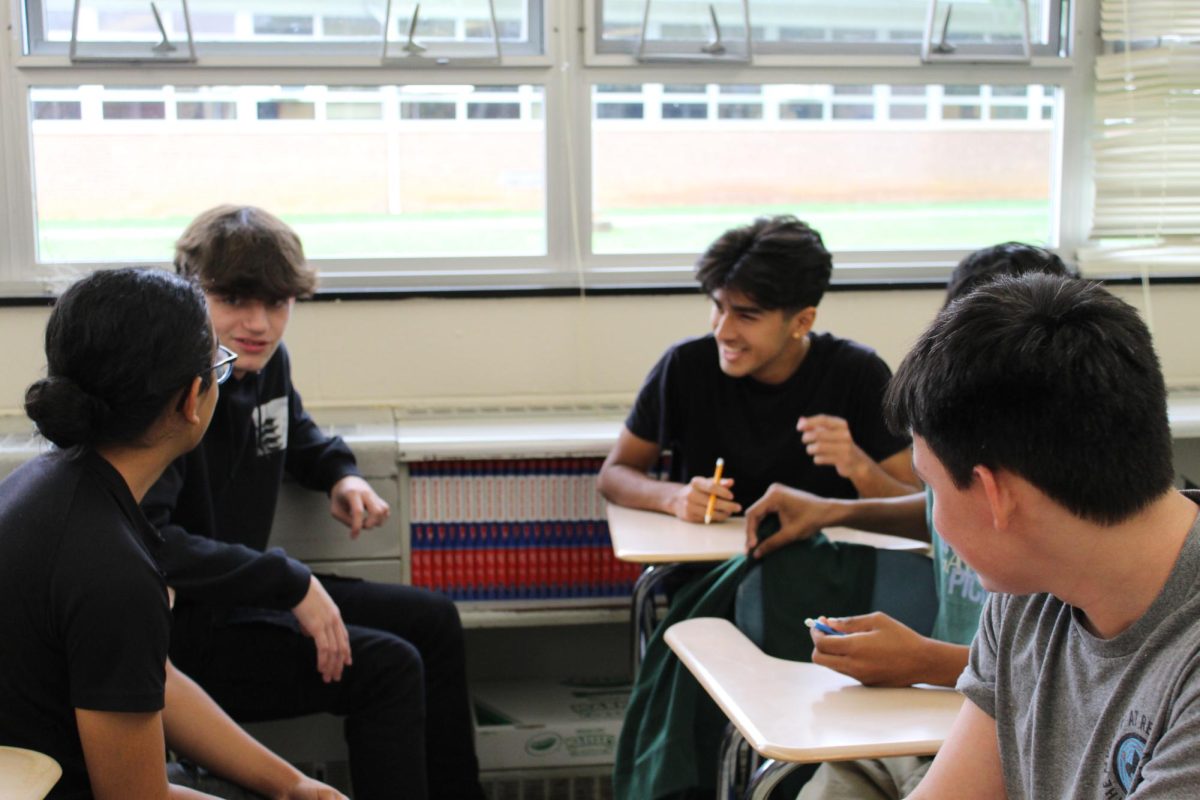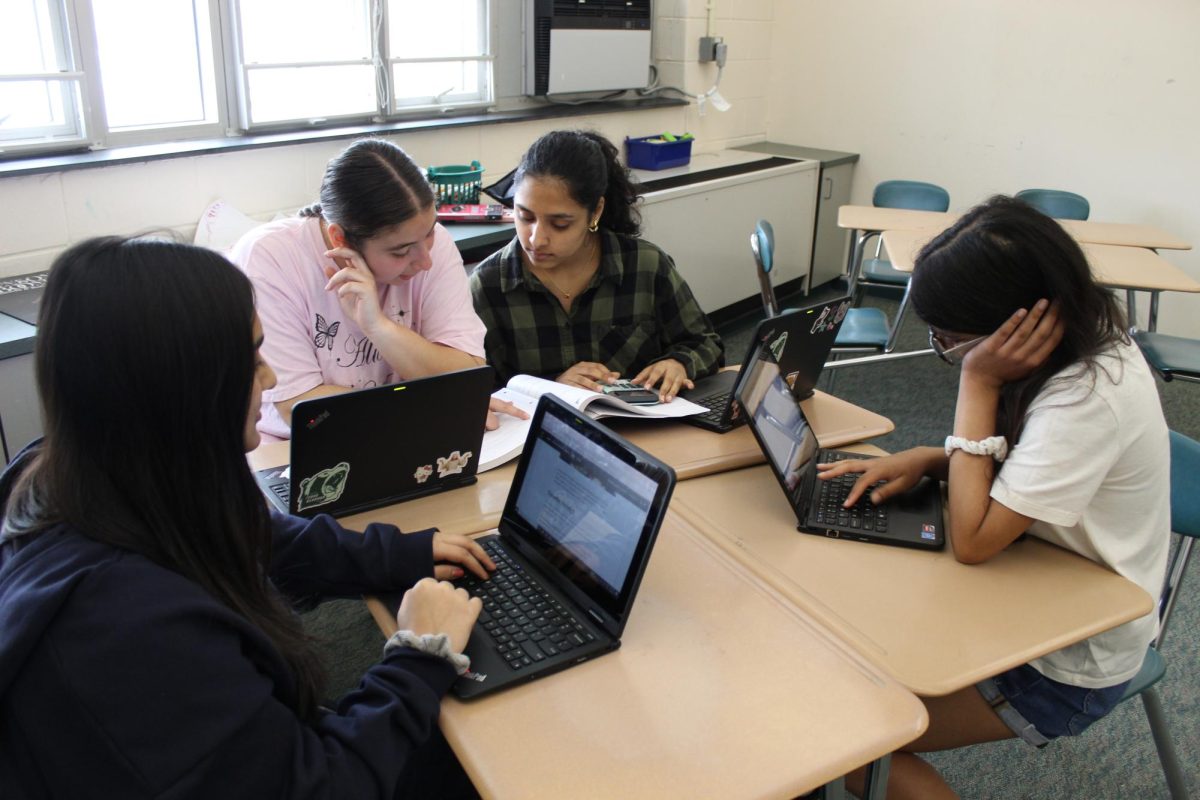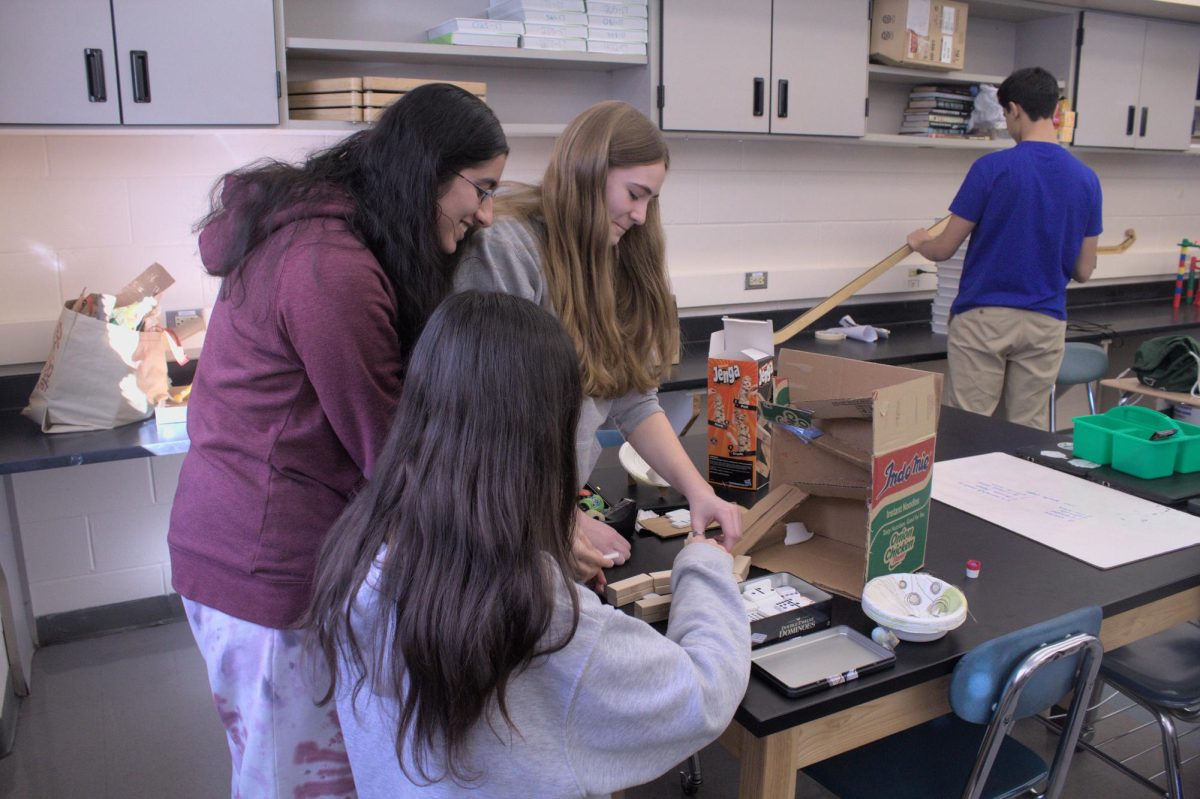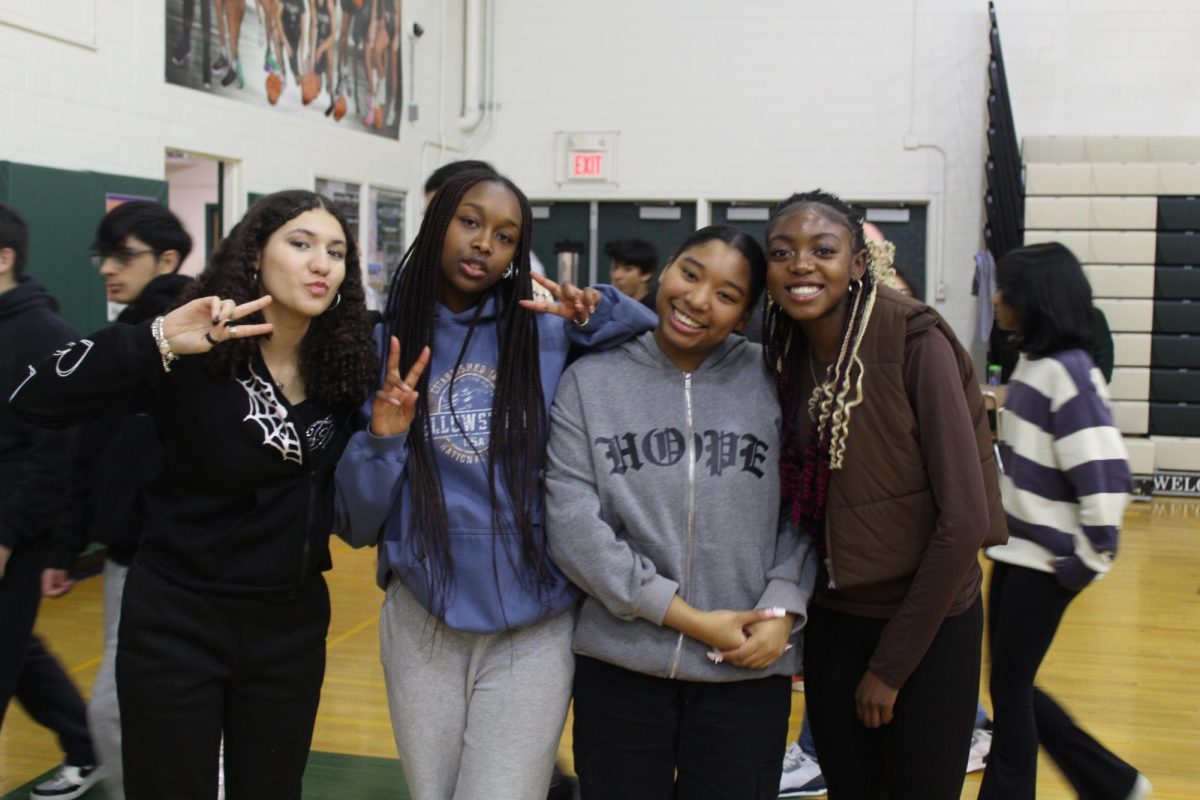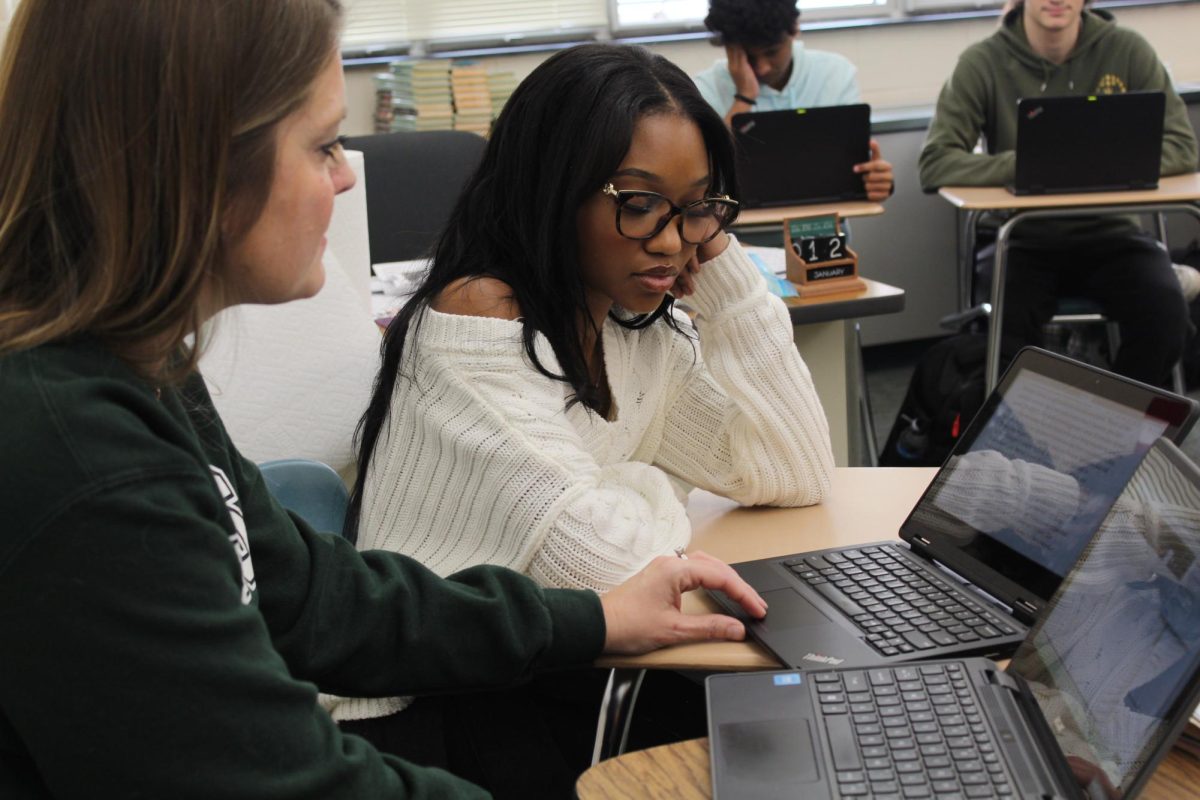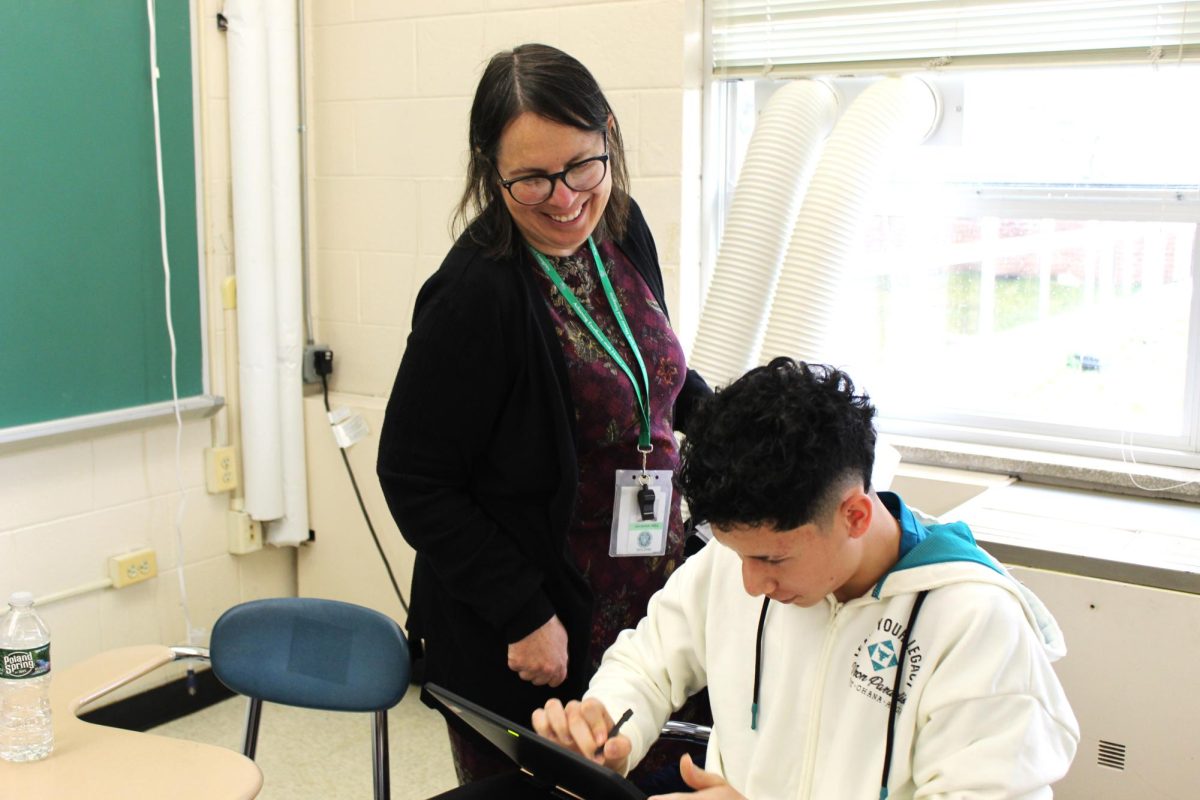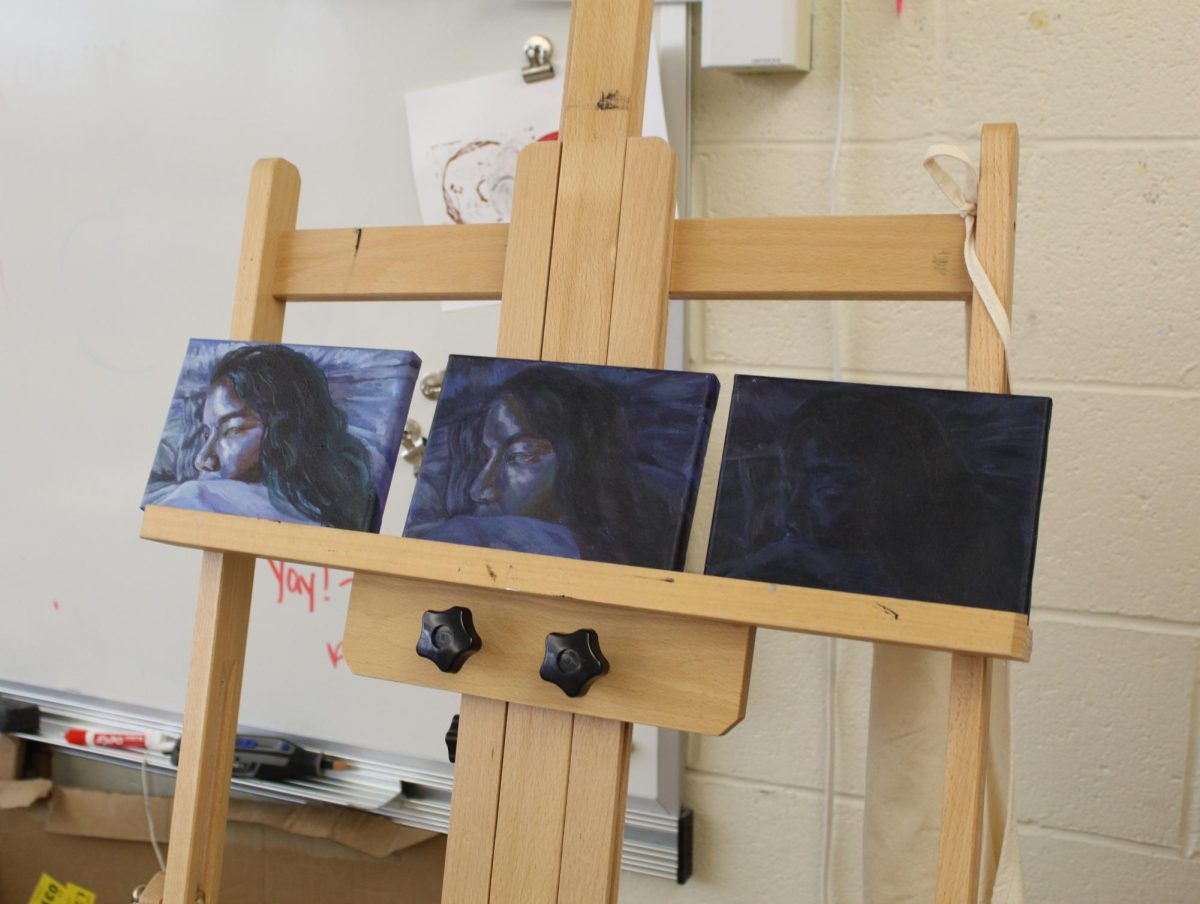“I believe it’s really important to fight social inequality, and that starts with governments doing the right thing,” explains AP French student, Rithvik Juluru (11), “and there is no way of getting the government to do the right thing if the people do not protest.”
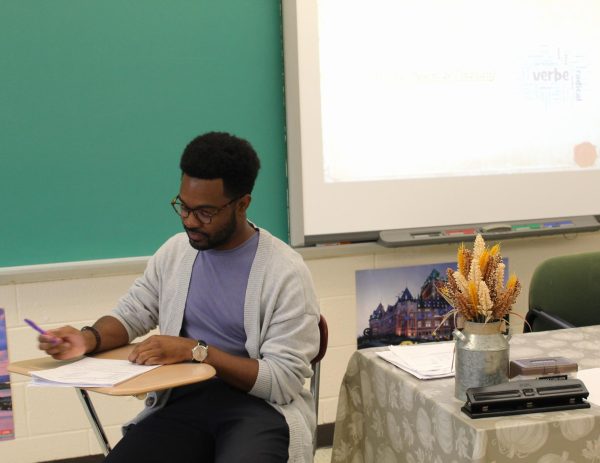
Mr. Mondesir’s Period 6 AP French Language and Culture class has recently tackled workers’ rights protests in France and prompted heavily opinionated voices. With these lessons, he sought to give his students perspective by focusing on overarching current events outside their classroom. “A cultural difference that I see here is that when Americans are unhappy, a lot of them do not really do anything about it, where French people will react,” he says. These protests are primary examples of Mondesir’s theory on cultural differences.
Gilet Jaunes is one of these protests in which this idea is proven real, and one that student Anne-Gabriella Reyes (11) has passionately advocated for. She explains that government workers– or yellow jackets– in France have been fighting unequal wages and for decent worker rights.
“It is a very good cause for protesting because everybody deserves fair wages and fair working rights,” Reyes said, “and I think their ability to protest that was really cool.” For her, it came down to the facts: the protesters were only working towards “being seen as their own person, and not just a collection of mindless slaves for the government.” When asked if there was anything she disagreed with regarding Gilet Jaunes, Reyes said she was completely on board with their motive!
Some students only sided with the protests to a certain extent, taking a more cautious approach. For example, Rithvik Juluru felt the protests were reasonable but drew the line at, “the measure of violence that they use” seeing it as “a bit too extreme.”
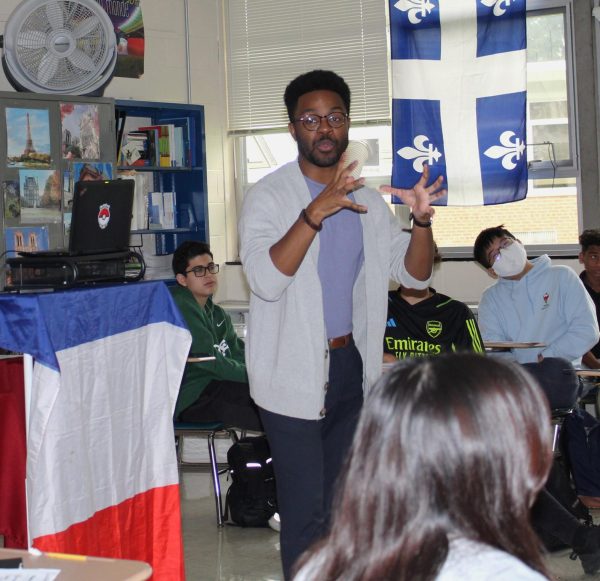
Nonetheless, both students have agreed that the protests were held so that the French government understands that there is a large social inequality that needs to be addressed. They heavily criticized the government’s ignorance of the less fortunate when it is their job to bring them up. This is the very issue these protests are founded on, and what has appealed to Mr. Mondesir’s students most.
Mr. Mondesir challenges his students think outside of their lives in East Brunswick, New Jersey, and even North America overall, by incorporating more than just grammar, punctuation, and sentence structures in his language course. With this, his Period 6 AP students come out of his classroom with a more global, worldly perspective on current events relating to French culture.


